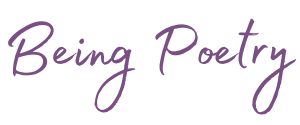
As a global community, a nation, and as individuals, we are navigating grief. For some, it’s the loss of a family member to COVID or their employment; for others it’s the loss of the vacation or dining at a restaurant. I’m not casting aspersions at anyone. Grief is complicated. There truly isn’t a grief olympics.
Grief stitches itself into a person and leaves the ends of the thread hanging out. Sometimes, you feel the twinge of the deeply-seated stitch of the loss of your father six years ago. Sometimes, the dangling thread catches on a current moment and you cast books from your shelves searching for an ephemeral gift from a newly gone friend. Your response to “Did you maybe throw it away?” is a wail of “I didn’t know she was going to die!”
Grief challenges our ideas of how our lives are meant to be – of course our good friends, our spouses, our beloved pets will be with us always, of course our lives will continue forward with total freedom and no mass casualty events like a pandemic. For most of us, we don’t have ready tools to move forward in grief because we have never imagined a scenario where we would truly suffer loss. Grief always catches us by surprise, even if the person we lose is 93 years old, even if we know, though do not acknowledge, that everything is always changing. Sometimes we are mourning the loss of what we thought would be.
I try to write the grief out. Write about my father, about my friend, about a dream (and livelihood) on hold, the ravages of cancer. I try to reason my way through to the other side. But there is no other side. I recently read a snippet of a Seamus Heaney poem that sounded distinctly un-Heaney in matter:
To have lived it through and now be free to give
Utterance, body and soul – to wake and know
Every time that it’s gone and gone for good, the thing
That nearly broke you –
Turns out the quote is Heaney’s translation of the poet J. C. Bloem from a poem entitled “After the Liberation,” referring to the end of World War II. What a wish to “wake and know / every time that it’s gone and gone for good, the thing / that nearly broke you.” And still I wonder if that stanza can only refers to one layer, one moment, for surely the grief of the immensity of loss in the Shoah and World War II continues onward even to this day.
In some ways, it comforts me to think that there is no “other side.” There is just this side, with its griefs and its joys. With pain and with continuance, bravery and sorrow. To know that you will lose makes this moment of having more valuable, more present. The gift does not make the sorrow less. In fact, they are interdependent, “Elegy and ode our magnetic north and south,” from the poem “Equator” by Arthur Sze in The Ginko Light. We must praise in order to mourn.
I will still sit in the middle of the floor surrounded by books I’ve torn off the shelves weeping for my lost friend because I had the privilege to love her. I will still stand in the morning and praise the light reflected from the glacier because I also mourn that glacier’s retreat. I will not cease to love because I know that love is sewn to grief.

Leave a Reply